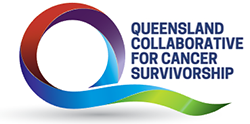

Project details
Pancreatic cancer is rare and deadly. Median survival is less than six months, so patients and their families have little time to adjust to this devastating diagnosis. Advance care planning is often undertaken before there is time to create a true therapeutic alliance with the treating team, and existential distress is exacerbated by distressing physical symptoms. Family carers of patients are confronted with the need to assist in the management of complex physical symptoms and provide emotional, financial, and spiritual support, typically with minimal support or guidance. Additionally, they face the impending loss of their loved one.
This project uses a hybrid effectiveness-implementation randomised controlled trial design to test our previously piloted counselling intervention in pancreatic cancer carers. Carers who are randomised to the intervention are offered ten one-hour telephone counselling sessions over 4 months (weekly for 4 weeks, then fortnightly) and monthly sessions if desired until the end of the study. The counselling sessions are delivered by a trained nurse via telehealth technology. The intervention is based on a self-efficacy paradigm and involves assessing needs, delivering intervention components appropriate to those needs, and providing feedback to clinicians where the nurse’s assessment is that further medical investigation and management may be warranted. Those in the control group will be provided with comprehensive information, and will be able to access other support services should they choose to do so.
Study Objectives
Our primary objective is to determine whether providing structured counselling to carers of people with pancreatic cancer reduces their anxiety. We will additionally determine the effects of the counselling intervention on: carers’ self-efficacy, depression, fatigue, unmet psychological needs and quality of life; and on patients’ emergency department presentations, time spent in hospital, timing of referral to specialist palliative care services, overall survival, and quality-adjusted life years. We will determine the cost-effectiveness of the intervention compared with the information control. Finally, we will measure a number of implementation and process outcomes consistent with the Reach Effectiveness Adoption Implementation Maintenance (RE-AIM) Framework, which was developed to facilitate translation of scientific advances into practice.
Funding/Grants
NHMRC MRFF Rare Cancers, Rare Diseases and Unmet Need Initiative Grant (#APP1200326): Aug 2020- July 2023 ($801,229)
For more information, please contact lead PI- Associate Professor Vanessa Beesley
